Mitchel Resnick Quotes & Sayings
18 most famous Mitchel Resnick quotes and sayings (educator). These are the first 10 quotes we have.
“When you learn to read and write, it opens up opportunities for you to learn so many other things. When you learn to read, you can then read to learn. And it's the same thing with coding. If you learn to code, you can code to learn. Now some of the things you can learn are sort of obvious. You learn more about how computers work.”
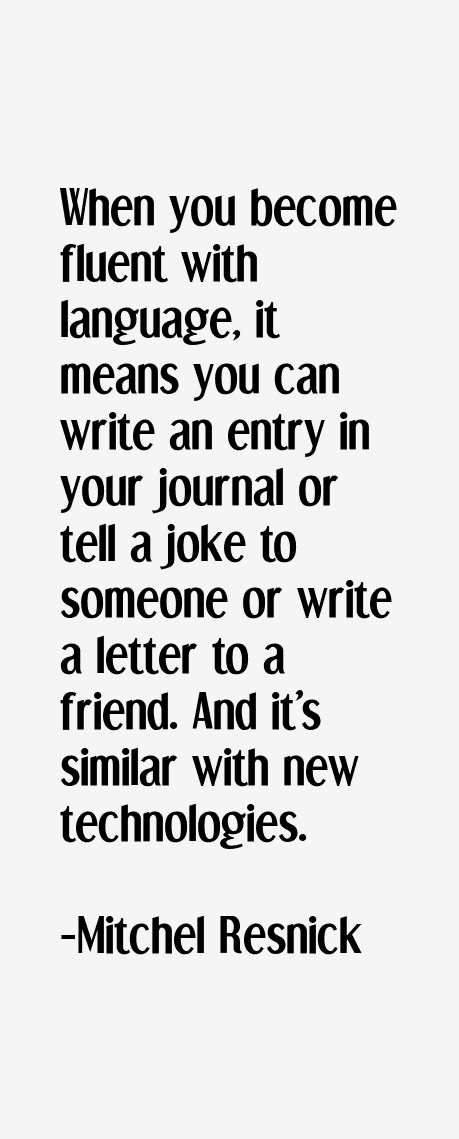
“When you become fluent with language, it means you can write an entry in your journal or tell a joke to someone or write a letter to a friend. And it's similar with new technologies.”
“I started my career as a journalist, writing about science and technology for 'Business Week' magazine. Then I decided to make a career shift. I went to graduate school in computer science, and I began developing educational technologies - in particular, technologies to engage children in creative learning experiences.”
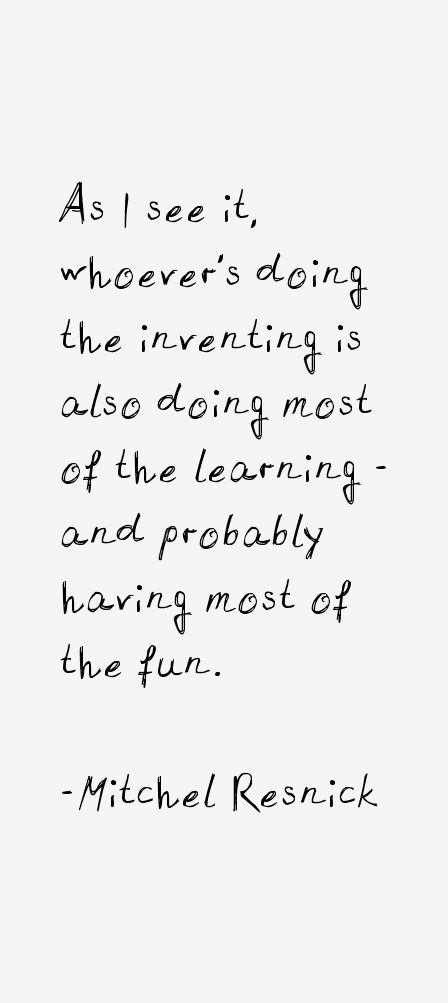
“As I see it, whoever's doing the inventing is also doing most of the learning - and probably having most of the fun.”
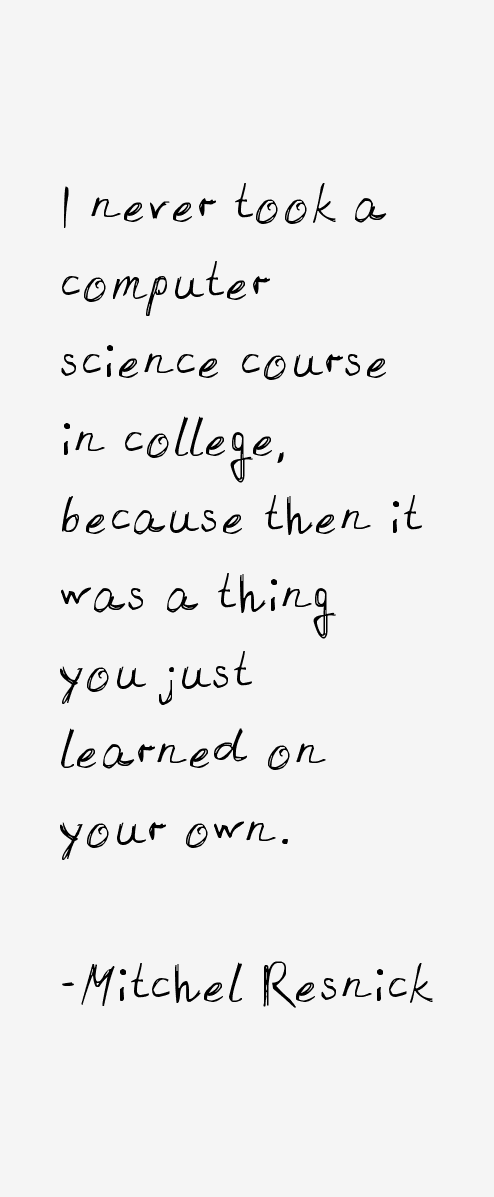
“I never took a computer science course in college, because then it was a thing you just learned on your own.”
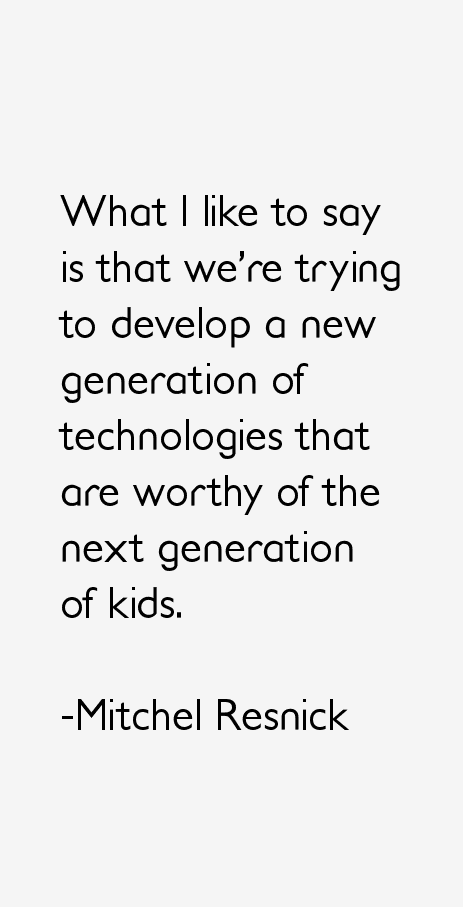
“What I like to say is that we're trying to develop a new generation of technologies that are worthy of the next generation of kids.”
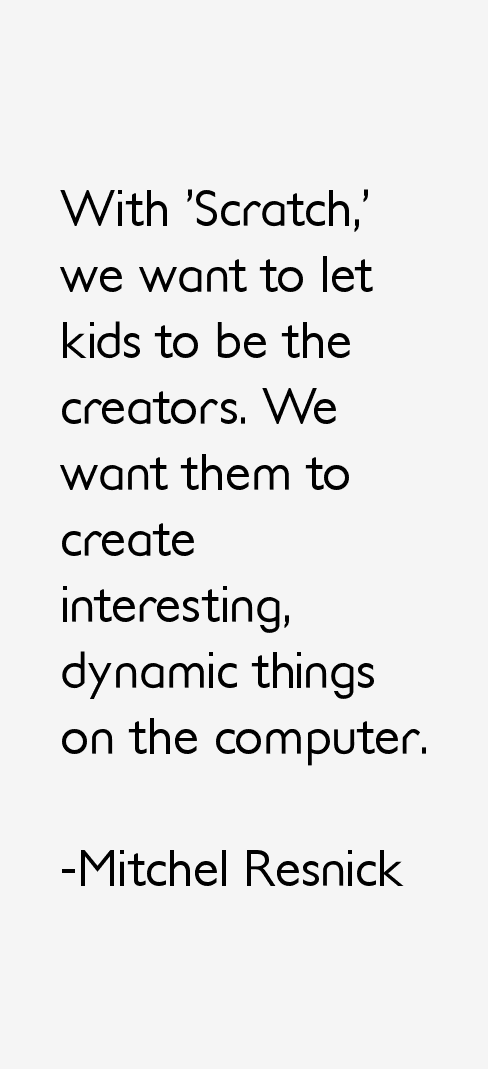
“With 'Scratch,' we want to let kids to be the creators. We want them to create interesting, dynamic things on the computer.”
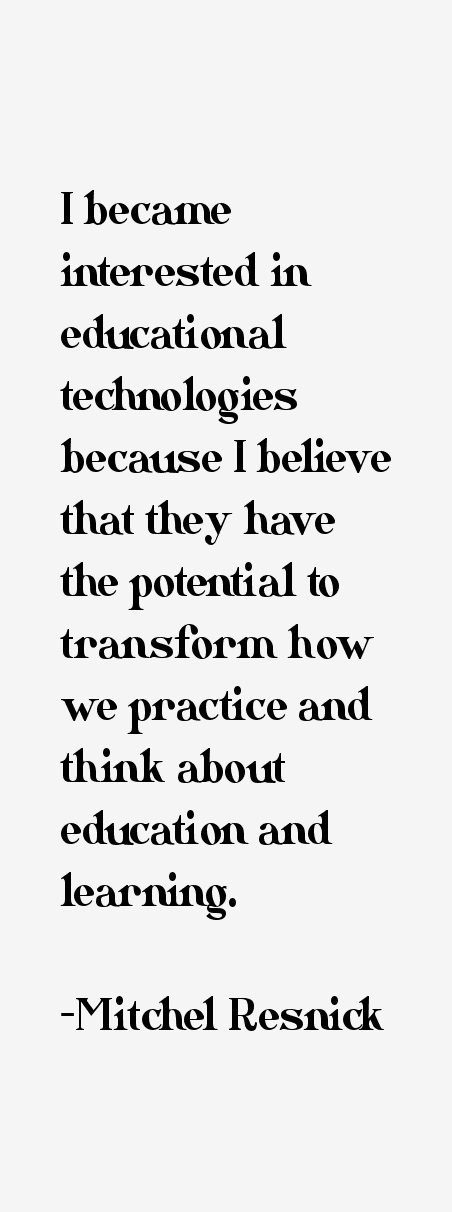
“I became interested in educational technologies because I believe that they have the potential to transform how we practice and think about education and learning.”
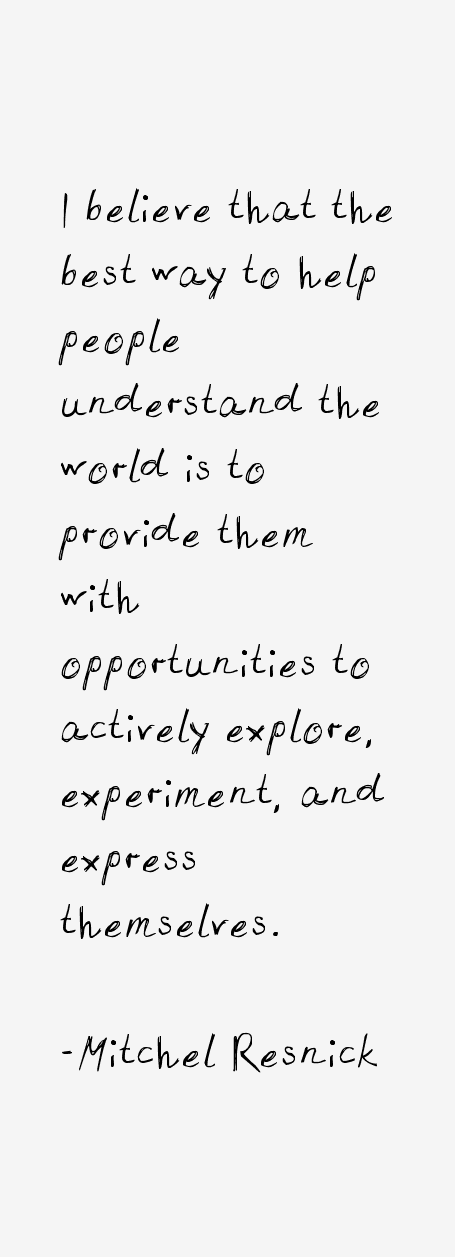
“I believe that the best way to help people understand the world is to provide them with opportunities to actively explore, experiment, and express themselves.”
“With 'Scratch,' our goal is to allow people to mix together all kinds of media, not just sounds, in creative ways. We want people to start from existing materials - grabbing an image, grabbing some sound, maybe even bits of someone else's program, and then extending them and mixing them to make them their own.”
Mitchel Resnick Quotes Rating
No Ratings Yet
Leave A Comment
























